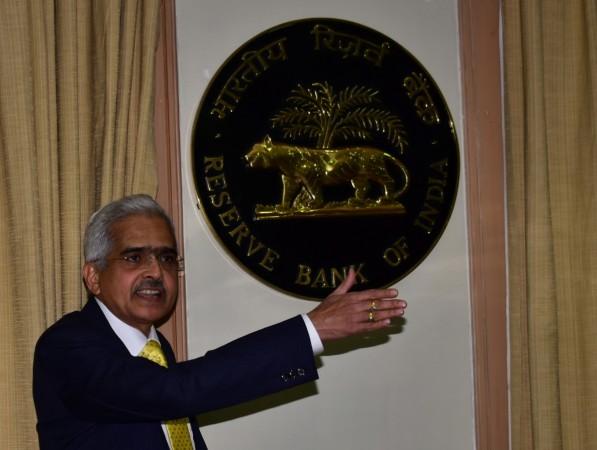
Reserve Bank of India Governor Shaktikanta Das gave a bespoke rate cut for Prime Minister Narendra Modi's government, which has shifted into the election mode for the general election 2019.
The surprise reduction in the repo rate by 25 basis points to 6.25 per cent and the tweaking of the lending norms of non-banking financial companies (NBFC) were expected to result in a surge in liquidity.
The economy, which has been feeling a liquidity squeeze since the controversial demonetisation exercise and an unprecedented crisis in the NBFCs must be benefiting from the RBI measures.
They should have buoyed the markets on the heels of a feel-good budget that in an unprecedented move will release Rs 6,000 each to farmers owning up to 2.5 hectares for the last three months of this financial year apart from the whole of the next financial year starting on April 1.
The surprise element in the RBI announcement in part was marked as only 25 per cent of economists that Bloomberg surveyed had anticipated a rate cut by Thursday's monetary policy committee (MPC) meeting, the first since Das took over the mantle from Urjit Patel. In contrast, nearly everyone surveyed was pricing in a shift in the central bank's policy stance to "neutral" from "calibrated tightening".e
But the positive surprise failed to enliven the markets which fell for the second successive day on Friday. Soon after the RBI statement, the markets began to unwind
Nifty 50 dipped below the psychological 11,000 points briefly before gaining some traction.
Some economists blame the election year uncertainty for the market mayhem where Tata Motors tanked about 29 per cent at one stage. Some think the bond markets show that while the rate cut may have been a positive surprise, traders are weighed down by other concerns.
"Normally, a shift in stance and a rate cut would have caused a 10-12 basis points' drop in bond yields. The markets' response was far more subdued primarily because of worries about a large supply of government paper, and a concern that RBI may reduce the quantum of open market operations," the Mint website quoted R Sivakumar, head (fixed income) at Axis Mutual Fund in a report.
Bond yields on the benchmark 10-year paper fell only three basis points on Thursday, showing the market's general risk aversion.
The interim budget 2019 that Piyush Goyal presented standing in for Finance Minister Arun Jaitley suggested gross market borrowing of more than Rs 7 lakh crore, far higher than the Street's estimates.
Though the market responded positively on the budget day and the in the next session to the feel-good element, worries about the credibility of the fiscal deficit numbers, especially with regards to revenue assumptions, seem to have crept in.
The continuing global worry over the worsening US and China trade wars that is keeping the global indices choppy seems to have caught on in the Indian markets also.

















